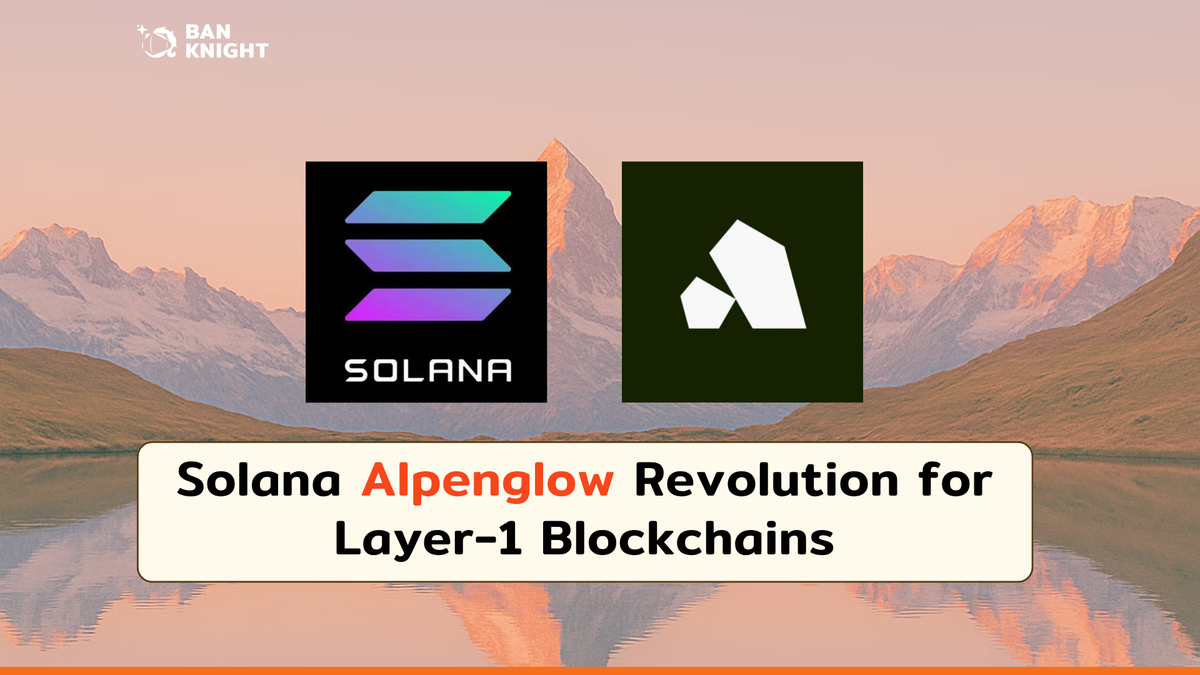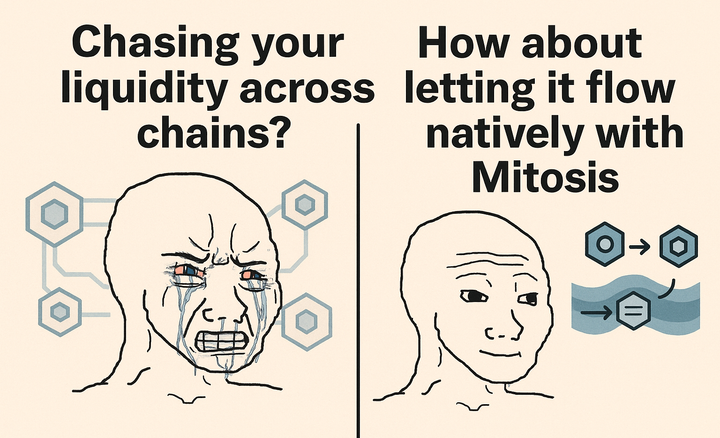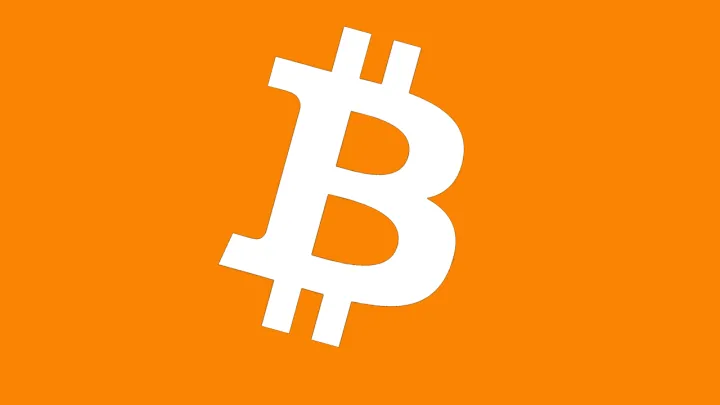Solana Alpenglow Revolution for Layer-1 Blockchains

In the rapidly evolving world of blockchain, speed and reliability are paramount for widespread adoption. Solana has been hailed as one of the fastest blockchains, yet it has faced challenges with stability and finalization times that haven't fully met the demands of truly real-time applications.
This is where Solana Alpenglow comes in. Developed by Anza (a core Solana development company spun out of Solana Labs), Alpenglow is a significant architectural upgrade to the Solana network, aiming to break through previous limitations and elevate the Solana user experience to the next level.
What is Alpenglow and Why is Finalization Critical?
Solana Alpenglow is a major upgrade focused on reforming Solana's core to increase transaction finality, speed, and network stability.
Finalization is the moment when a transaction or block of data is permanently recorded and can no longer be altered. It's like concrete drying completely, making the information highly reliable. Accelerating finalization is Alpenglow's key highlight, ensuring transaction security, network reliability, and support for real-world applications like financial systems or high-speed gaming.
Solana's Current System: PoH + Tower BFT (and its Limitations)
Before understanding Alpenglow, let's look at Solana's current system:
Proof of History (PoH) is a crucial innovation in Solana. It uses a hash function to create a continuous, verifiable record of events, like timestamping every action on the network. This eliminates the need for nodes to wait for time confirmation from other nodes, significantly speeding up transaction processing and allowing Solana to handle a high volume of transactions.
Advantages of the current system:
- High Speed: Solana is designed to theoretically handle up to 65,000 transactions per second (TPS) (including vote transactions), making it one of the fastest blockchains in the world.
- Scalability: It can efficiently expand the number of validators (verifier nodes) to increase its transaction capacity.
- Low Cost: Transaction fees on Solana are very low compared to other popular blockchains like Ethereum.
Disadvantages addressed by Alpenglow:
Despite its strengths, Solana's current system has some limitations:
- Network Instability: There have been intermittent network outages due to overload or DDoS attacks, sometimes leading to a loss of confidence. Alpenglow aims to resolve this.
- Slower-than-expected Finality: While transaction processing speed (high TPS) is fast, actual full transaction finalization still incurs a delay of approximately 12.8 seconds. This is not ideal for applications requiring truly real-time responsiveness, such as high-speed financial systems or games.
- Security and Durability Issues: The current system is still too vulnerable to attacks or errors by a few nodes impacting the entire network.
Why You Should Be Excited About Solana Alpenglow
Alpenglow is designed to address and solve these issues, focusing on a revolutionary leap in network performance:
Dramatic Speed Increase (Sub-second Finality):
- Reduces finalization time from approximately 12.8 seconds to just 100-150 milliseconds (ms). This is the most significant change, meaning nearly 100 times faster transaction finality!
- Supports Real-time Applications: This level of speed will enable Solana to truly support applications requiring real-time responsiveness, such as competitive online gaming, high-frequency trading systems, or instant payment systems.
Enhanced Network Stability:
- "20+20" Resilience: The new system is designed to tolerate up to 20% malicious validators and another 20% unresponsive validators (a total of 40%) while the network continues to operate efficiently and without interruption.
- Reduced Outages: This significantly reduces the likelihood of intermittent network outages that have occurred in the past, vastly increasing reliability for users and developers.
Improved Data Distribution:
- Introduces the newly developed Rotor system to replace the older Turbine system. Rotor is Alpenglow's improved data distribution mechanism.
- Reduced Latency and Increased Efficiency: It allows transaction data to be distributed to various nodes on the network more quickly and efficiently, reducing bandwidth costs and speeding up data transfer between nodes.
How Alpenglow Works
Alpenglow completely re-engineers the consensus and data distribution systems, comprising two crucial components:
Votor (Advanced Voting System):
- A new voting mechanism that helps finalize blocks in just 100-150 milliseconds.
- It operates with both a "single-round" voting mode (if ≥80% stake participates) and a "two-round" mode (if ≥60% stake responds). Both modes run concurrently, ensuring blocks are finalized as soon as the faster path completes.
- Consensus activities will occur off-chain, eliminating vote transaction fees.
Rotor (New Data Distribution System):
- A data distribution system that replaces the old Turbine.
- Focuses on minimizing cross-network data transmissions to a single hop.
- Leverages validator bandwidth proportional to their stake to distribute data efficiently and rapidly.
The Result: Elevating Layer-1 Standards
Alpenglow's reduction of Solana's finality to 100-150 milliseconds is a monumental change.
- Outperforming Most Competitors: This level of finality is comparable to or faster than many traditional payment systems, making Solana a clear leader in Layer-1 blockchain finality.
- Redefining "Speed" for L1s: Alpenglow doesn't just make Solana faster; it fundamentally changes what a Layer-1 blockchain can achieve in terms of real-time transaction finality.
Alpenglow's Development Roadmap
- Prototype: Testing completed.
- Testnet: Expected mid-2025.
- Mainnet: Anticipated late 2025 or early 2026.
Conclusion
Previously, many Layer-1 blockchains competed on speed, with some having slightly faster finality than Solana or higher theoretical TPS.
However, once Alpenglow is fully implemented, Solana's 100-150 millisecond finalization will be a game-changer. This will position Solana as one of the fastest Layer-1 blockchains in the world in terms of true transaction finality. It will not only challenge the limits of blockchain technology but also open doors to mass adoption in ways never before possible.
Alpenglow is a critical step that will push Solana to become a limitless platform, ready to support the future of Web3, which demands speed, stability, and reliability on par with the most advanced digital infrastructure in the world.



Comments ()